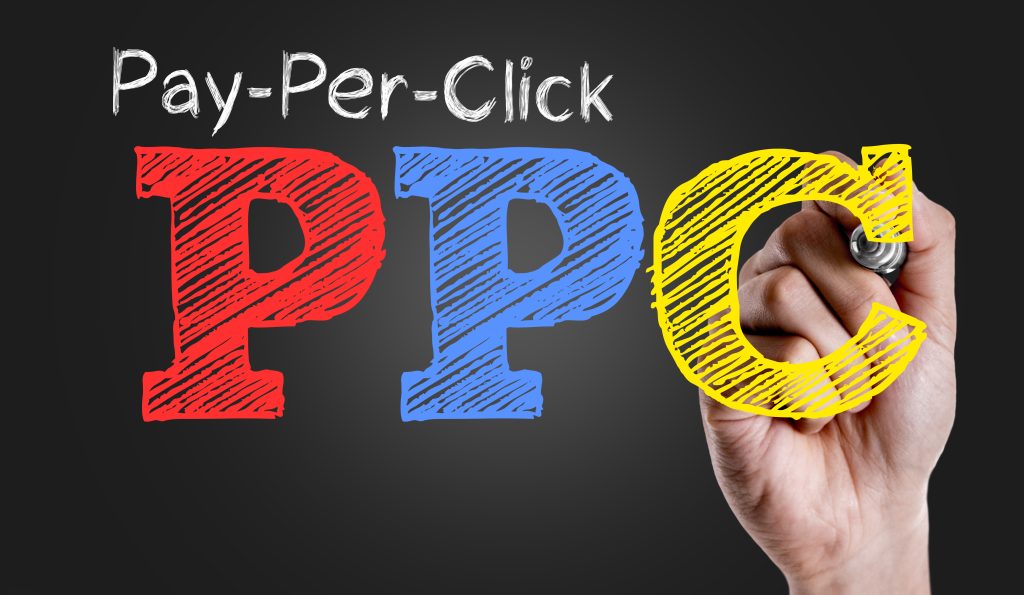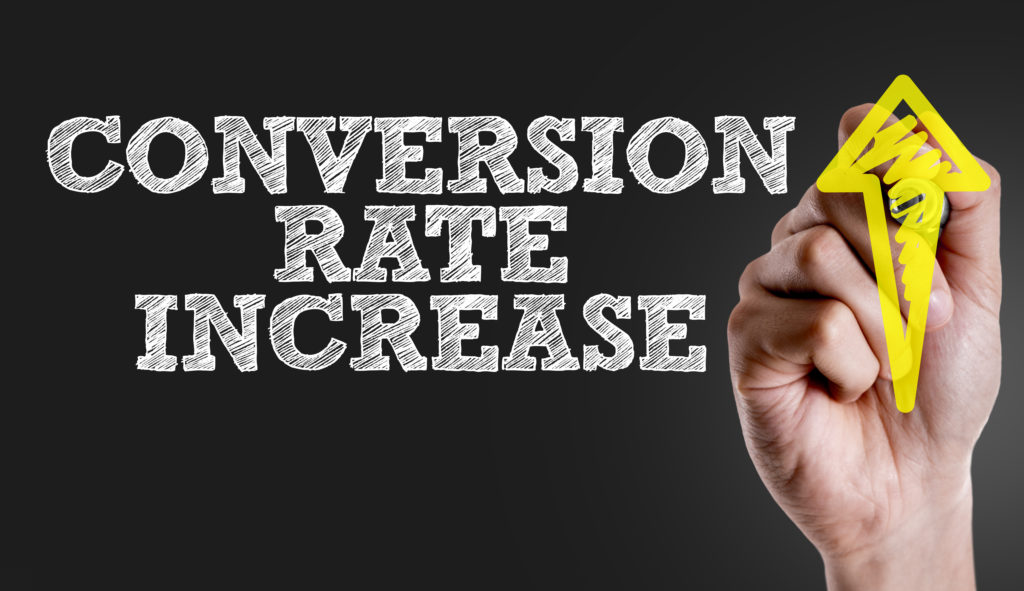How to Put Google Ads and Analytics to Work for Your Small Business
When it comes to marketing your business using your website, there are two tools you should seriously consider having in your arsenal. And, rather conveniently, they’re both made by Google. I’m talking about Google AdWords and Google Analytics, two very different online services that, when combined, create peanut-butter-and-jelly-levels of delicious bliss for online marketers. Successful PPC management services use them, and with some training, you can, too.
I’ll assume you are a PPC beginner or at least need a refresher on what both are, so I’ll start there first.
What is Google AdWords?
 It’s Google’s chief moneymaker, and the reason your search results are sandwiched between ads. Google provides businesses with the ability to bid on the keywords used in searches: for example, “brown leather jacket.”
It’s Google’s chief moneymaker, and the reason your search results are sandwiched between ads. Google provides businesses with the ability to bid on the keywords used in searches: for example, “brown leather jacket.”
When you search using that term, you’re presented with pages upon pages of websites selling brown leather jackets. But the first few search results on a page, as well as the last few, are reserved for text ads. Companies low in the rankings for “brown leather jacket” won’t drive a lot of organic traffic, but bidding for the term can put their website on the front page thanks to AdWords, effectively negating their poor search presence. Google AdWords advertising is the great equalizer: if you bid at the right price, you can send qualified traffic to your business, and you only pay for it, if they click your ad.
Definition of Google Analytics
 If AdWords is the tool for sending potential customers to your website, Google Analytics is the tool to help you study their behavior. True to its name, Analytics helps you analyze how people found your website and what they did while they were there. You can see which page referred the visitor, where that visitor is from, which pages they looked at, and how much time they spent on your website. You can even set up Goals, which are completed when a visitor accomplishes a certain task (such as visiting a “Thank You” page after submitting a form). Google website analytics can provide you with a deeper understanding of what your website visitors are interested in, and where your website and its content might be tripping them up.
If AdWords is the tool for sending potential customers to your website, Google Analytics is the tool to help you study their behavior. True to its name, Analytics helps you analyze how people found your website and what they did while they were there. You can see which page referred the visitor, where that visitor is from, which pages they looked at, and how much time they spent on your website. You can even set up Goals, which are completed when a visitor accomplishes a certain task (such as visiting a “Thank You” page after submitting a form). Google website analytics can provide you with a deeper understanding of what your website visitors are interested in, and where your website and its content might be tripping them up.
You now have a basic understanding of what these two tools can do for you. Next, I’ll tell you why they work so well together, and how Google Analytics can help your Google AdWords campaign run more efficiently than ever before.
AdWords + Analytics Advantages
 AdWords, at its core, is a service designed to serve ads up to Google’s search engine users. The advertiser backend exists to help you create ads, choose the keywords you want those ads to show up for, and decide how much you want to bid on each keyword. And when a user clicks on your ad, Google provides you with the most basic of details: which search term the person used, which ad they clicked on, and how much it cost you. Sure, there are some more advanced statistics: the click-through rate for a certain keyword, for example, or the percentage one of your ads was shown over another. But Adwords isn’t giving you anything truly deep.
AdWords, at its core, is a service designed to serve ads up to Google’s search engine users. The advertiser backend exists to help you create ads, choose the keywords you want those ads to show up for, and decide how much you want to bid on each keyword. And when a user clicks on your ad, Google provides you with the most basic of details: which search term the person used, which ad they clicked on, and how much it cost you. Sure, there are some more advanced statistics: the click-through rate for a certain keyword, for example, or the percentage one of your ads was shown over another. But Adwords isn’t giving you anything truly deep.
That’s where Google Analytics comes in.
Analyzing Keyword Engagement

When you connect your Google Analytics account to Google AdWords, you’re suddenly provided a wealth of new information. You can see which keywords were clicked on in AdWords, but in Analytics, you can see how engaged website visitors are with those keywords. Is someone searching for “brown leather jacket” routinely spending about five seconds on your page, or are they taking their time to check out your product, and possibly showing an intent to buy? With Analytics you can know for sure.
Checking Landing Page Effectiveness
 Is your landing page convincing website visitors to purchase your product or service? Or do they find it terribly uninteresting? When you’re spending your company’s hard-earned cash on AdWords, it’s easy to blow a good bit of it sending potential customers to an ineffective landing page. Google Analytics can help you determine if a page is a winner or a loser quickly so you can either tweak it or replace it.
Is your landing page convincing website visitors to purchase your product or service? Or do they find it terribly uninteresting? When you’re spending your company’s hard-earned cash on AdWords, it’s easy to blow a good bit of it sending potential customers to an ineffective landing page. Google Analytics can help you determine if a page is a winner or a loser quickly so you can either tweak it or replace it.
Fine-tuning Your Sales Funnel

Your website probably has a pretty standard looking funnel a visitor goes through on their way to becoming a customer. You use AdWords to send someone to a landing page, you use your copy there to sell them on what you’re offering, and you hope they either complete a form, check out a shopping cart or some other call-to-action. And AdWords, to its credit, will happily send a potential customer your way, but it won’t tell you a whole lot about why they decided against buying from you.
With Analytics, you can set up a sales funnel in-app and see exactly where visitors stop going through the process. Could it be your checkout page? Is it too confusing to use, or is it not working correctly? Google Analytics can, at the least, wave a flag and point to a page as if to say, “Something’s wrong here,” which is far more than you’ll get from AdWords alone.
Tracking Those Tricky Conversions
 Let’s say, for example, you have some conversion goals set up in Google Analytics. Let’s also say you count a received phone call as a conversion. Are you tracking that in Google Analytics? It’s tough to do. However, by connecting your Google AdWords account to Google Analytics, this capability suddenly becomes much more simple. Using the two accounts in combination, you can track an ad click to a phone call, and see that phone call go through as a conversion in Analytics, helping you better understand where your leads are coming from and which communication channels your customers prefer. It’s another benefit you receive when you use Google AdWords and Google Analytics in conjunction, and another opportunity to tweak your advertising in order to grow your business.
Let’s say, for example, you have some conversion goals set up in Google Analytics. Let’s also say you count a received phone call as a conversion. Are you tracking that in Google Analytics? It’s tough to do. However, by connecting your Google AdWords account to Google Analytics, this capability suddenly becomes much more simple. Using the two accounts in combination, you can track an ad click to a phone call, and see that phone call go through as a conversion in Analytics, helping you better understand where your leads are coming from and which communication channels your customers prefer. It’s another benefit you receive when you use Google AdWords and Google Analytics in conjunction, and another opportunity to tweak your advertising in order to grow your business.
As you can see, there are quite a few positives to tying your AdWords and Analytics accounts together. And the more you experiment with both, the more you’ll see how the two are able to join forces and provide your business with some incredibly potent and actionable marketing data.
Stay tuned. In our next installment, we’ll look at some of the more advanced features you’ll find in AdWords and how they can help your ads stand out. If this is sounding more complicated and time-consuming than you thought, not to worry! We can handle an AdWords campaign for you – our AdWords management is the easiest and quickest lead generation method around!





